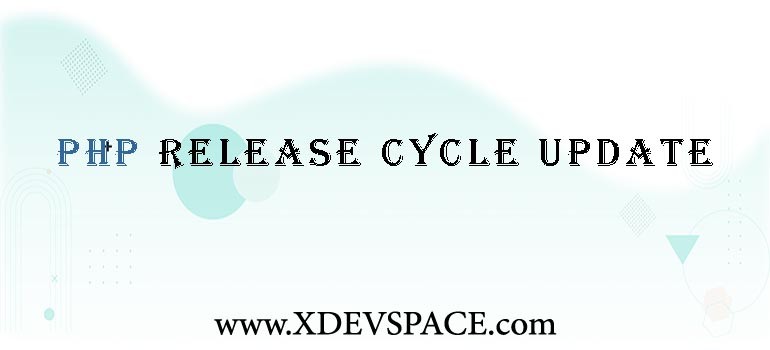
PHP Release Cycle Update

The PHP Core team has passed an RFC that outlines a few important changes to the release cycle of the currently active and future PHP releases.
The Release cycle update RFC requested comments and a vote for several changes, and two of the most important changes include extending the active maintenance period of each PHP version from one year to two years, and aligning the active support and end-of-life dates to the end of the calendar year.
Up until this change, each major PHP version (such as PHP 8.3, 8.4, 8.5, etc) received two years of active bug fixes and security fixes, followed by one year of security updates. This effectively meant that each major PHP version received a total of three years of support, and all PHP applications were compelled to upgrade to the next PHP version before this three year period.
The new change that has been adopted effectively means each major PHP version will receive two years of security fixes instead of one year. This essentially means each PHP version will receive a total of four years of support — two years of active maintenance and two years of security fixes.
Further, the active support and end-of-life dates have moved to always end on the last day of the calendar year. Previously, the PHP version on the security-fixes-only status reached its end-of-life immediately when the upcoming PHP version was released.
This release cycle change applies to currently active PHP versions too.
The following table shows the updated active-support and security-support periods:
| PHP version | Release date | Active maintenance until | Security fixes until (EOL date) |
|---|---|---|---|
| PHP 8.1 | 2021-11-25 | 2023-11-25 | 2025-12-31 |
| PHP 8.2 | 2022-12-08 | 2024-12-31 | 2026-12-31 |
| PHP 8.3 | 2023-11-23 | 2025-12-31 | 2027-12-31 |
| PHP 8.4 | 2024-11-21 | 2026-12-31 | 2028-12-31 |
| PHP 8.5 | 2025-11-20 | 2027-12-31 | 2029-12-31 |
- Tags :
- php,
All Comments